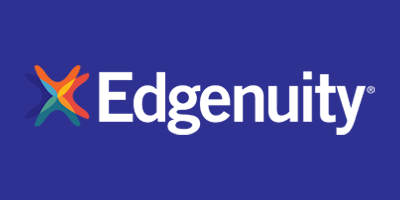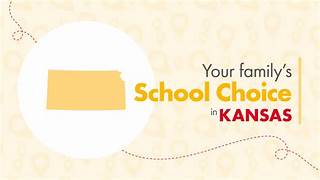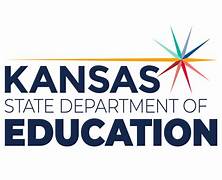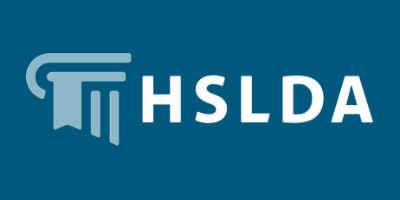Kansas Homeschool Information
—Homeschool In Kansas—
Homeschooling in Kansas




Find Out What the State Says About Home Education

Kansas Homeschool Review

- No State Testing or Oversight
- Kansas does not require testing, curriculum approval, or home visits.
Enrolling In A Private Accredited Online School Changes Things Somewhat

⚖️ What Stays the Same
-
Basic legal structure stays the same:
-
You still operate under Kansas NAPS rules,
-
Compulsory attendance and teacher competence laws don’t change.
-
-
No state testing or curriculum mandates:
Kansas doesn’t require state exams or specific subjects—regardless of whether you’re in an accredited program -
Oversight remains minimal unless there’s concern:
Kansas doesn’t perform routine audits or visits—even accredited homeschoolers won’t see them unless there’s cause
In Kansas If You Enroll In An Accredited Private Online Homeschool
Enrolling in an accredited online private school (an umbrella school) can change parts of your homeschooling experience in Kansas—but it doesn’t override the basic state requirements.
✅ What Changes with an Accredited Online School
-
You still register as a NAPS.
Kansas law classifies any homeschool—even accredited ones—as a non-accredited private school for legal purposes. The one-time registration with name, address, and custodian is still required -
More structured oversight & reporting.
Accredited programs typically enforce:-
Regular submission of attendance and enrollment records,
-
Periodic testing (standardized or competency-based),
-
Curriculum that aligns with accreditation standards,
-
Supervision by a credentialed teacher
These go beyond the minimal “planned instruction, competent teacher, 186 days/1,116 hours” required by Kansas law
-
-
Potential advantages for credit acceptance.
Accredited programs often provide formal transcripts and diplomas that may be more easily accepted by:-
Accredited schools (public/private),
-
Colleges,
-
Employers
However, acceptance still varies—many colleges and school districts accept well-documented homeschool transcripts just fine
-
Kansas K-12 School Choice

✅ Final Thoughts
-
Public open‑enrollment is the broadest option for most families since 2024.
-
Charters and magnets offer thematic environments but remain limited in Kansas.
-
Private scholarships expand access but have modest reach.
-
For tailored or intensive learning, homeschooling, virtual schools, and specialty programs like KAMS and Youth Entrepreneurs offer unique benefits.
Kansas School Choice Summary
Kansas families have a range of K‑12 “school choice” options, spanning public, charter, private, homeschool, and specialty programs:
🏫 1. Public School Choice
Inter‑district Open Enrollment
-
Starting in the 2024–25 school year, any Kansas student may apply to any public school district statewide, provided the receiving district has space
-
Districts must publish capacity and hold lotteries if applications exceed spots, with sibling priority and no biases on race, ability, or athletics .
-
Transportation isn’t guaranteed—families are generally responsible .
Charter & Magnet Schools
-
Charter schools exist but are few—around 9–10 statewide, mostly district-affiliated “alternatives” and no independent authorizers, making Kansas one of the weakest charter markets in the U.S.
-
Magnet schools: Roughly 33 statewide, focused on themes like STEM or arts, open to all students with public funding .
🏛 2. Private School Programs
Tax-Credit Scholarship
-
The Tax Credit for Low‑Income Students Scholarship Program allows businesses to donate to scholarships for private school; parents apply for those scholarships. In 2023, eligibility expanded to families up to ~250% of federal poverty ($75k for a family of 4)
-
Participation is small (~0.3% of students) and private school tuition ranges roughly $7k–$10k/year
📚 3. Homeschooling & Virtual Learning
Homeschool
-
Parents register homeschooling as a private school, teach at least 186 days/year, with no mandated curriculum
Online / Virtual Options
-
No statewide virtual school, but 8 virtual charter schools plus numerous district-run programs serve ~14,000 students . Available part-time or full-time.
Homeschool Resources for Kansas
Homeschooling has been part of education for centuries. In earlier times, it was simple to begin without worrying about rules or oversight. Today, however, homeschooling regulations vary by state, and some families may find it more challenging to get started. That’s why NFC Academy provides helpful state-specific pages outlining homeschool laws—to guide and support you as you begin your journey.
In areas with stricter requirements, having reliable support is important. Organizations like the Home School Legal Defense Association (HSLDA) offer valuable legal guidance and protection, helping families stay informed and confident. With the right tools and resources, homeschooling can be a rewarding and manageable experience, no matter where you live.
Information on this page is intended for informational purposes for homeschool families in the specific state. The information supplied does not, nor is it intended to, provide specific legal advice. For specific legal advice, we recommend you consult an attorney. Membership with Homeschool Legal Defense may provide legal information for your situation, but you may prefer a local private attorney to review your situation to provide specific legal advice. The information provided was assisted in writing by AI.



